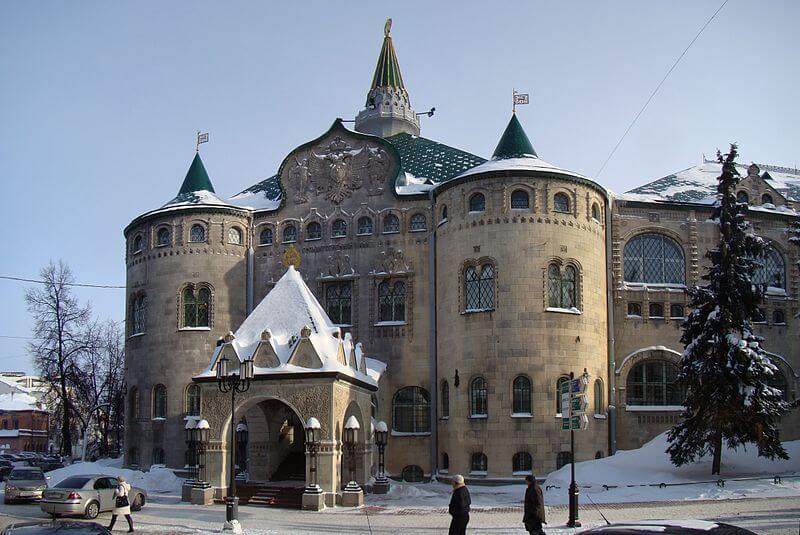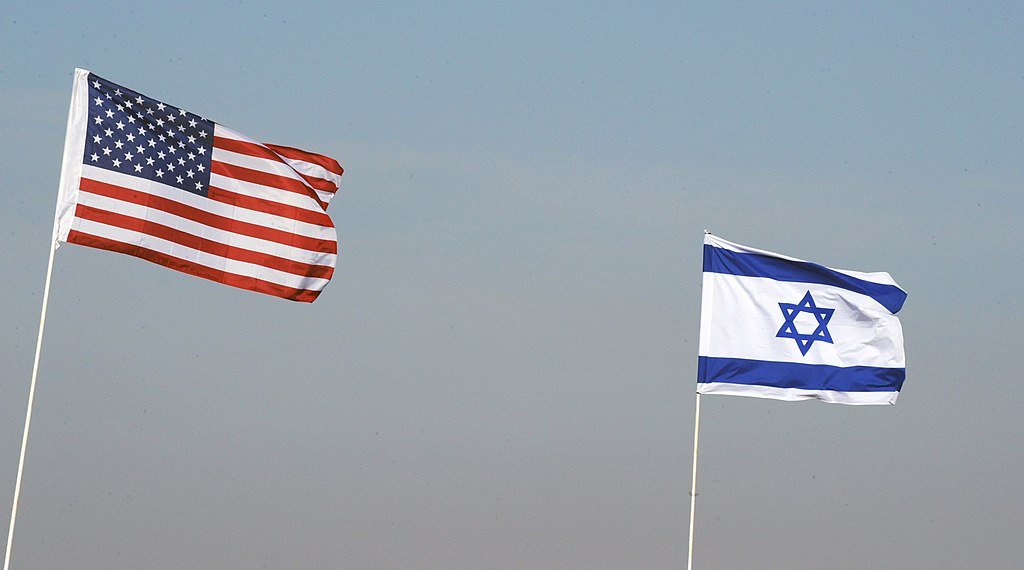Justice and the Confiscation of Russian State Assets
If the United States confiscates Russian state assets and transfers them to Ukraine, it shou

Published by The Lawfare Institute
in Cooperation With

As Russia’s war on Ukraine lumbers on, calls to confiscate already-frozen Russian state assets grow louder. Shouldn’t the United States and its allies force a down payment on the reparations that Russia undoubtedly will owe Ukraine by the end of this conflict? Many in Europe have taken up this cry, and Canada has enacted the authority to confiscate Russian state assets but has yet to exercise it. If the United States and its allies take this step, they should use a portion of the distribution to satisfy some part of the judgments that victims of Russia’s lawlessness, in cases clearly connected to the invasion of Ukraine, already have obtained in international tribunals and national courts.
In the United States, Congress would likely have to adopt legislation to achieve this. Existing sanctioning authorities exclude confiscation of frozen assets, absent a direct armed attack on the United States that, thankfully, has not yet happened. The civil forfeiture alternative—which the 2023 Consolidated Appropriations Act endorsed as a means of converting frozen assets to funds for Ukrainian resistance—requires a preexisting criminal offense to take effect. It is difficult to envision how existing criminal law applies to the currently frozen state assets. Moreover, if the Supreme Court decides Türkiye Halk Bankasi A.S. v. United States, an argued case pending judgment, the way respected contributors to Lawfare have proposed, existing forfeiture authorities probably could not apply to the assets of foreign states or of state-owned enterprises.
If confiscation is the preferred outcome, then, Congress will have to do something. In earlier contributions to Lawfare as well as testimony before the Senate, I have identified some difficult questions that U.S. lawmakers will need to address if and when they take this step. In my judgment, though, neither constitutional nor international law presents an insurmountable barrier to a properly drafted statute permitting the confiscation of frozen Russian assets to satisfy outstanding judgments against Russia held by various claimants. And there are ways Congress and the president could permit this that would also redound to Ukraine’s benefit.
Enough time has lapsed to allow many of the victims of Russia’s earlier lawlessness to reduce their claims to a legal judgment. Many have used procedures to which Russia consented through international treaties, with fair and impartial arbitrations producing awards backed by the force of law. Others have taken advantage of exceptions to sovereign immunity in U.S. law to obtain U.S. court judgments. These cases all represent lawful determinations of the reparations Russia owes the victims of the Vladimir Putin regime’s growing disregard of international law.
To get down in the legal weeds, these legal judgments remain outstanding because of a general feature of the international law of sovereign immunity. A plurality of states around the world, including the United States, allow some exceptions to sovereign immunity from lawsuits in their courts. Almost all states, however, extend to state assets broader immunity from attachment and execution against them to satisfy a legal judgment. None of the judgments described above fit into an existing exception from immunity from attachment and execution, which is the process that judgment creditors must use to get paid on their claims. To implement my proposal, Congress would have to amend the prevailing statute, specifically Section 1610 of the Foreign Sovereign Immunities Act. In an earlier article, I sketched out the arguments for taking this step, including its legality under international law.
This is how it might work: Congress would enact legislation that would give the president authority to designate some portion of frozen Russian assets for the satisfaction of judgments—either arbitral or judicial—against Russia and its state-owned entities in cases where a judgment represents compensation for a violation of the international rule of law by the Putin regime. These assets, rather than being transferred to Ukraine, would come under a new exemption from otherwise applicable sovereign immunity protections, making them subject to enforcement measures by judgment holders. Accountable actors in the executive branch should determine, on a case-by-case basis, which of these judgments should be paid from the fund, and in what amount, with judicial review under the Administrative Procedure Act and other relevant law. One of the factors that the licensing authority should be allowed to consider is whether the judgment creditor has made a legally binding commitment to turn over some portion of the recovered money to a specially established fund to support Ukraine’s resistance to the Russian invasion. Specificity in the enacted standard for licenses plus judicial review should ensure that the licenses are granted fairly and consistent with Congress’s purpose rather than as ad hoc grants to the individual judgment creditors.
I have argued on Lawfare and in congressional testimony against ill-considered legislative encroachments of sovereign immunity. Vanderbilt Law Professor Ingrid (Wuerth) Brunk has also made convincing arguments opposing invocation of the terrorism exception to immunity against Russia that the United States almost uniquely recognizes. Brunk also has carefully parsed the sovereign immunity issues implicated by confiscating Russian Central Bank assets. One may fairly ask: Why create a new exception to foreign sovereign immunity here?
The principal distinction is that the United States would create this exception not on its own, as it has with respect to terrorism-related judgments, but rather in concert with its allies. Moreover, the awards in question rest on international law both as to the substantive claims and as to Russia’s consent to submit to the jurisdiction of the arbitral tribunals in international treaties. All fall within recognized international law exceptions to immunity from litigation, if not necessarily from attachment and execution. Carving out an exception for this narrow class of judgments would not disrupt the fabric of international law in a way that might come back to bite the United States—a concern I had with respect to proposals in the past on similar subjects. Here, the narrow amendment to Section 1610 that I propose would apply only to those judgment creditors who can demonstrate, to the satisfaction of an executive branch organ applying the legislative standards (and relevant U.S. courts), their status as victims of the Putin regime’s prior violations of international law.
In concrete terms, who would be the potential beneficiaries of this proposal, were it to become law? Drawing only on my own experience as an adviser to U.S. lawyers and an expert witness on Russian law, two sets of claims against Russia come to mind. The first involve Russia’s blatantly unlawful 2004 renationalization of the Yukos Oil company, which targeted a prominent and, from Putin’s perspective, dangerous critic of his regime and also wiped out foreign investors. Some have referred to this expropriation as Putin’s “original sin” or, in other words, the transgression that laid the groundwork for everything that followed. As David Ignatius has documented, Russia’s strategic turn against the West occurred exactly at this time. The second set of claims arises out of Russia’s confiscation of the property of Ukrainian investors during and after its annexation of Crimea.
In both instances, many international tribunals, including the Permanent Court of Arbitration in The Hague and the European Court of Human Rights in Strasbourg, issued awards, which the domestic courts of countries such as the Netherlands and Switzerland have upheld against Russian attacks. Both sets of claims are also related to Russia’s invasion of Ukraine: Yukos was the canary in the coal mine, in terms of the Putin regime’s turn against the international rule of law, and the Crimean expropriations arose out of essentially the same war that Ukraine is fighting today. Proceedings under way in the Netherlands might create a third class of claims relating to this war, were they to order Russia to pay compensation to the victims of its destruction of Malaysian Airlines Flight MH17 over Ukraine. A Dutch court already has held Russian officials criminally liable for the attack and found that Russia had overall control over the military operations that brought it about.
So why not give everything directly to Ukraine? The invasion, although uniquely appalling in terms of the destruction of lives and property, represents a culmination of Russian indifference to its obligations to the rest of the world. Many of Russia’s violations connected to the current war can be traced to earlier decisions by the Putin regime to attack its adversaries while undermining the country’s judiciary and civil society. And as the violations became greater, the regime’s sense that it could get away with international lawlessness grew. This sense of impunity fed a conviction that Russia could wage war in its “near abroad” without substantial international consequences. First came the 2014 annexation of Crimea, followed by the ongoing attack on the Donbas, and now the 2022 invasion of Ukraine. It is easy to draw a straight line from the earlier instances of lawlessness to the present crisis. There is also a pragmatic argument: Using Russian assets to satisfy lawful awards against Russia is on strong international legal ground. For the reasons I have argued in my prior contributions, transferring the assets to Ukraine creates a risk that, upon the cessation of hostilities, Russia might have a legitimate claim either to their return or for compensation for their loss.
A decision to confiscate Russian state assets, including those of state-owned businesses, rests ultimately on concerns about deterrence and justice. To wean Russia from its inclination to ignore its legal duties, the international community must ensure that its lawbreaking has consequences. When a state has agreed by treaty to submit its actions to independent international scrutiny, legal consequences—not just sanctions—become available.
Justice requires some degree of fairness in the distribution of the reparations obtained, even if deterrence of future lawlessness motivates this step. The urgency of resistance to the invasion is manifest. At the same time, the United States and its allies have reasons of their own to discourage Russia from using force against its neighbors and have a commensurate interest in empowering Ukraine to undertake the discouraging. They do not need the proceeds from confiscation to do this, even if drawing on Russia’s money might make aid to Ukraine easier for domestic critics to swallow. Fairness requires at least some recognition of the injuries others have suffered in the chain of events that led directly to the 2022 invasion.
Ultimately, confiscation of Russia’s frozen state assets must rest on commitments to justice, not just on expediency. The United States and its allies should take this step because it is the right thing to do, not just because it represents a superficially costless way to raise money.
Disclosure: I am not under retainer from any law firm and have no financial interest in any of the disputes discussed in this piece. No one has compensated me in any way to write this article. As I say in the body of the article, however, I have advised law firms that have brought international legal claims against Russia on relevant issues of international law and testified in arbitral and judicial proceedings as an expert on Russian law. Some of this work was done on behalf of persons who might benefit were the proposal I describe to become law.





